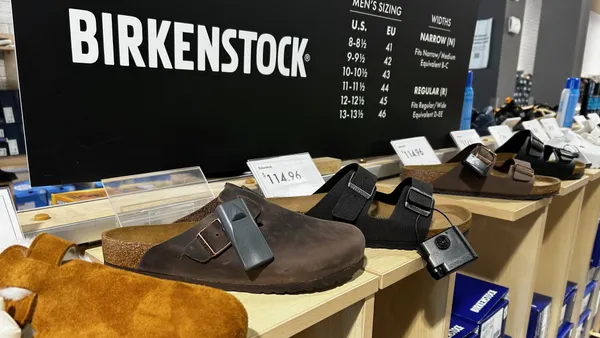Dive Brief:
-
States that say they’re losing significant money from online retail sales are increasingly working together through the Multi-state Tax Commission to recoup state sales taxes, focusing on online marketplaces like Amazon, Bloomberg reports. States are asking third-party merchants selling on marketplaces to collect taxes in exchange for a break on back taxes.
-
Retailers with a physical presence in a state have been required to collect and remit sales taxes since a 1992 U.S. Supreme Court decision on Quill Corp v. North Dakota, and the Supreme Court was petitioned earlier this month to overrule the physical-presence requirement precedent.
- Half of online sales are now taking place through marketplaces, and that could rise to two-thirds in five years, according to Forrester Research, yet marketplace sellers don't typically collect sales tax levies even when their retail hosts, like Amazon or Walmart, do.
Dive Insight:
Amazon, which enjoyed a sales tax advantage for years as it built up its retail juggernaut, began collecting sales taxes in April from all states that have implemented such levies. But its marketplaces sellers are a different story. As of last year, half the goods sold on Amazon come through its marketplace and that may be growing. For states with retail sales levies that represents another step back when it comes to collecting taxes for online retail sales. Amazon declined to comment on this story to Retail Dive.
Their problem will likely only get worse as marketplaces continue to gain steam. Consumers have come to prefer them because they offer competitive prices and a deep catalog of merchandise, according to research from Forrester commissioned by marketplace platform company Mirakl and e-commerce solutions firm ChannelAdvisor. More than 70% of consumers said they appreciate the ability to view prices from various sellers on marketplaces, and 56% said they seek marketplaces that offer a variety of products and services, that research found.
For a while now in the U.S., Amazon and eBay have been the big names in marketplaces, and, with Alibaba’s Tmall in China, they accounted for about $365 billion in sales worldwide in 2016, or 31% of all e-commerce sales, according to global market research firm Euromonitor. And Walmart's e-marketplace, launched in 2009, is gaining fast, in part because many merchants want to diversify their outlets beyond Amazon’s marketplace, according to eMarketer.
Several states have attempted to revise online sales tax collection but have run afoul of the Quill decision. Twenty-two states, including South Dakota, Texas, Florida and Colorado, plus the District of Columbia are part of the Multistate Tax Commission National Nexus Program, which has devised a forgiveness program for marketplaces, giving them time to devise ways to collect taxes going forward. The states are reportedly meeting Wednesday to extend the Oct. 17 expiration of that program, Bloomberg reports.
Despite states' best efforts, however, and given the swift evolution of marketplaces and the gray area in which they fall here, it's not clear that states will gain much standing when it comes to collecting taxes from such sales.














